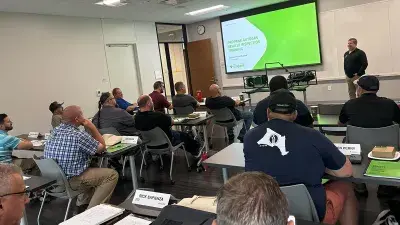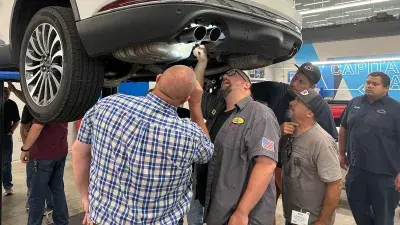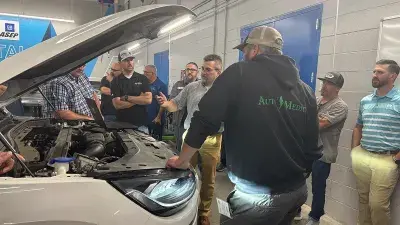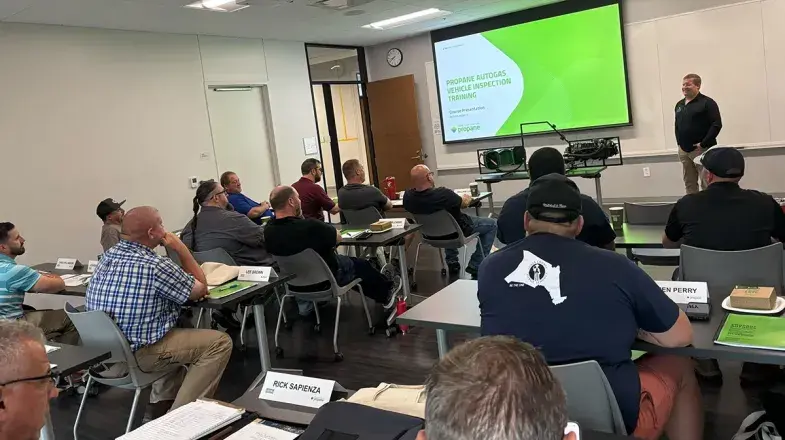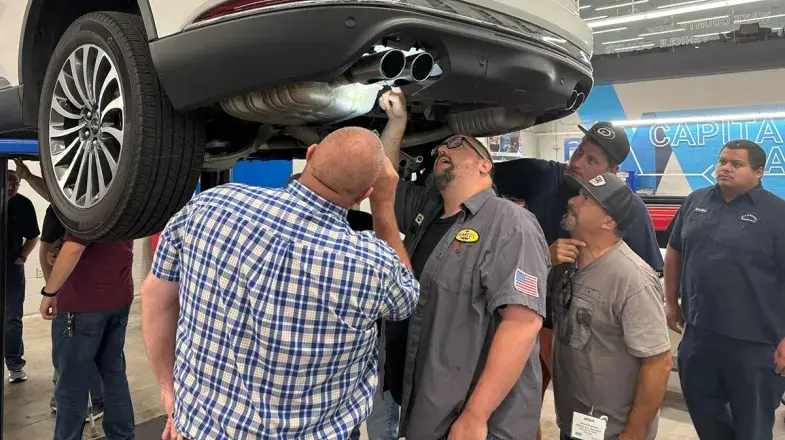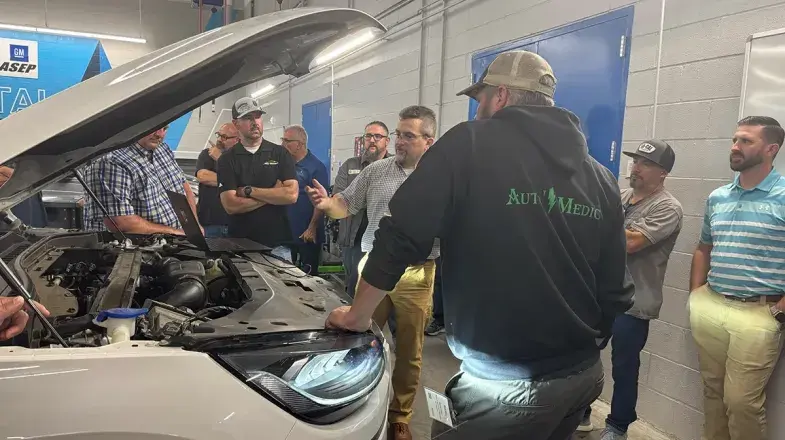Events
Training the Trainers in Propane-Powered Vehicles
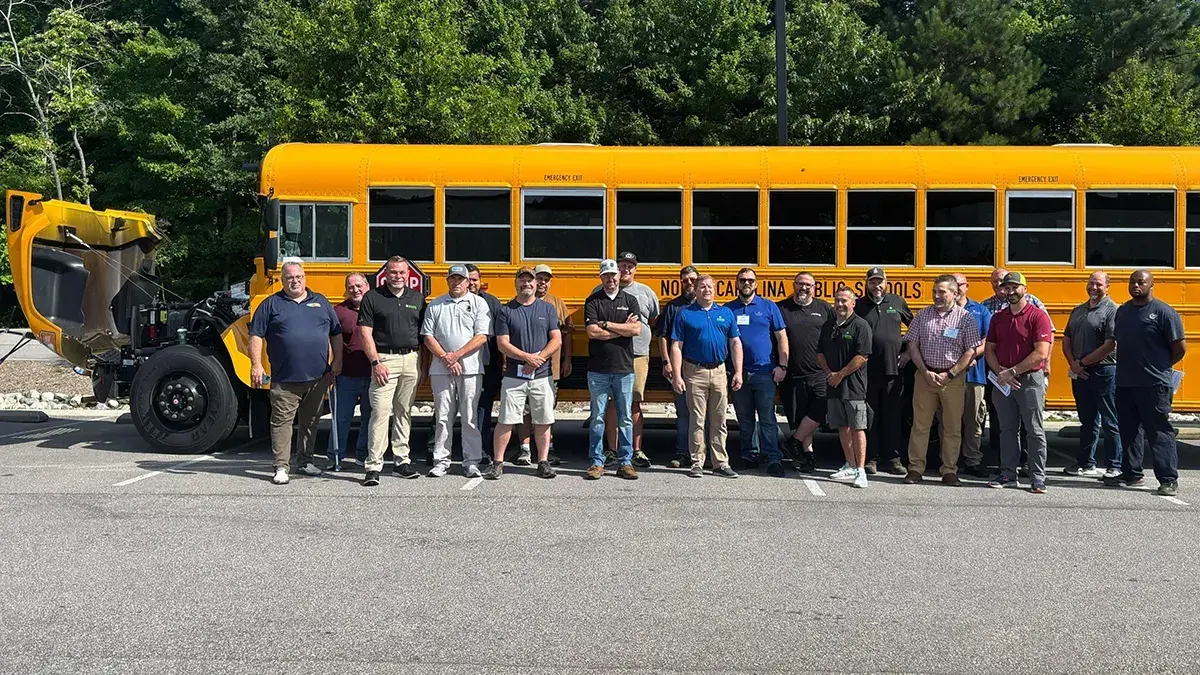
Photo Gallery
RALEIGH, N.C. (June 11, 2025) – It's full speed ahead at Wake Tech, which is leading the way in training the next generation of technicians in clean-energy transportation.
The college hosted a two-day "train the trainer" program on propane-powered autogas vehicles on the Scott Northern Wake Campus. Representatives from the Propane Education & Research Council (PERC) provided comprehensive, hands-on training to instructors from Wake Tech's Automotive Systems Technology program, as well as representatives from the City of Raleigh and the City of Durham and several educators from other states who are grant recipients of PERC's Propane Autogas Vehicle Inspection Grant Program. The instruction took place at the Hendrick Center for Automotive Excellence, home to Wake Tech's automotive systems and collision repair programs.
Propane — sometimes known as liquefied petroleum gas, or LPG — is normally compressed and stored as a liquid. It is non-toxic, colorless and is commonly used for heating homes and water, cooking and as fuel for engine applications such as forklifts, farm irrigation engines, fleet vehicles, buses and more.
The Propane Autogas Vehicle Inspection training included an overview of the science and safety of propane, what to look for in an autogas vehicle inspection and component identification. The training equipped instructors with the skills they need to bring propane vehicle instruction to their students.
Rick Sapienza, Wake Tech's dean of Transportation Technologies, says expanding training in clean-energy systems like propane autogas will help shape the workforce of tomorrow.
"We want to give our students an extra skill set and expand their career opportunities," said Sapienza. "By training technicians on propane-powered vehicles, we are removing a roadblock, making it easier for fleets to adopt propane."
Jim Bunsey, senior manager for business development at PERC, said the goal is to train students so they are familiar with propane systems and how to service them.
"We're reaching out to the future mechanics in the industry, so they understand the new technology," he said. "We're showing the components, tanks, fuel injectors and how they are similar to the gasoline engines that they are working on today – but it's being utilized for propane."
Propane autogas is gaining traction as a low-emission, affordable alternative to gasoline and diesel across the country.
"Propane is readily available and costs about a dollar less per gallon than gasoline," Bunsey explained.
For more information on a career in the automotive industry, visit transportation.waketech.edu.

